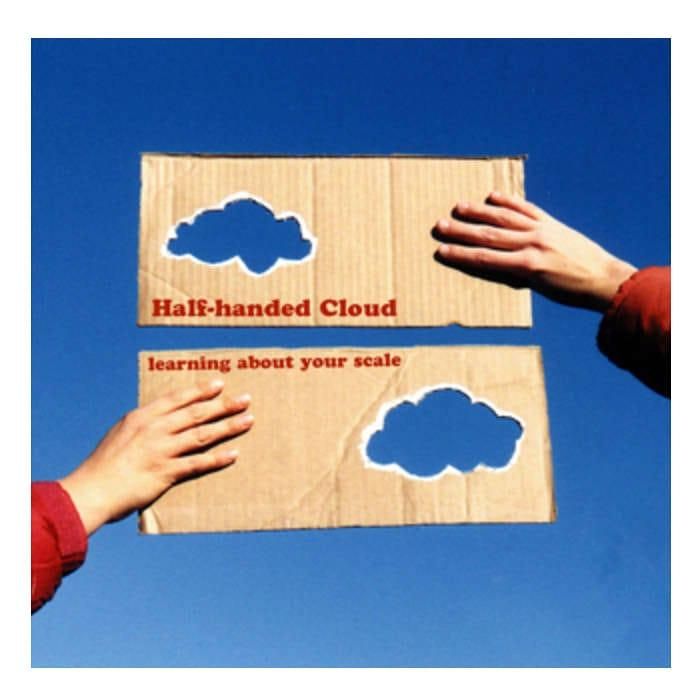Learning About Your Scale by Half-Handed Cloud (Review)

Here’s the challenge that comes with reviewing Learning About Your Scale: trying to keep the use of the word “offbeat” to a bare minimum. Regardless of how you look at the album, that’s the word that immediately comes to mind. Be it John Ringhofer’s, umm, unique brand of Biblical exegesis, or the patchwork musical accompaniment, the only way to really describe this album are with terms straight out of left field.
Ringhofer seems determined to keep things as deliberately quirky as possible. At times, it’s almost heavy-handed (no pun intended), which is ironic considering the loose, “lo-fi as can be” nature of these recordings. Sure, there are guitars and drums and other “standard” instruments in the mix, but they’re heavily overshadowed by everything else going on.
You have your “standard” assortment of horns, stringed instruments, and percussion. But then there’s the whole gaggle of devices that are just lumped under the generic term of “instruments” in the liner notes. I suspect this includes everything from slide whistles and dimestore accordions to toy pianos and anything else Ringhofer could haul from the toybox to the recording studio. Throw in some field recordings, phoned-in vocals, and other samples, and it’s an interesting mixture to say the least.
This fragmentary feeling carries over to the album’s lyrics with as much gusto. And if you thought the music was frustrating, you’re in for an even bigger challenge here. I’m sure there are those who will find Ringhofer’s tunes clever and full of fresh ideas. Unfortunately, I’m not one of them. There are parts of the album that had me chuckling; Ringhofer’s recreation of the Creation story is quite humorous. And his renditions of Biblical truths (“Rewire My Desire,” “Three To Guide Us Where We’ve Never Been”) capture a sort of childlike innocence that holds its own thrill.
But as varied as Ringhofer’s music is, it gets pretty tedious halfway through the album. Which is really saying something, seeing as how the album is only 24 minutes long. Sometimes, his odd musical journey seems to undercut the spirituality that he so obviously wants to convey, and some tracks, like “Stew Burny-Burn,” seem to serve no point other than outright silliness. But criticizing Ringhofer for making such strange music is kind of pointless because it’s obvious he has no intent to do otherwise.
Still, I find myself hoping for something of a focus, and it becomes painfully clear that’s exactly what this album lacks. It’s not a lack of spiritual focus; Ringhofer’s makes that quite clear. But it gets frustrating listening to an album where so much seems odd just for the sake of being odd, both musically and lyrically; it’s simply oddity piled on top of oddity, sometimes cute and fluffy, and sometimes simply grating.
Learning About Your Scale ultimately comes across as rough sketches, recordings of half-formed songs, and a collections of sounds that Ringhofer found interesting (for future use, possibly). It’s obvious Ringhofer has a formidable imagination, but that’s one thing. It’s another to harness said imagination within a solid framework. Oftentimes, that very framework proves far more liberating. At the very least, it can give the music focus and resonance, and those are the two critical qualities sorely lacking on this album.